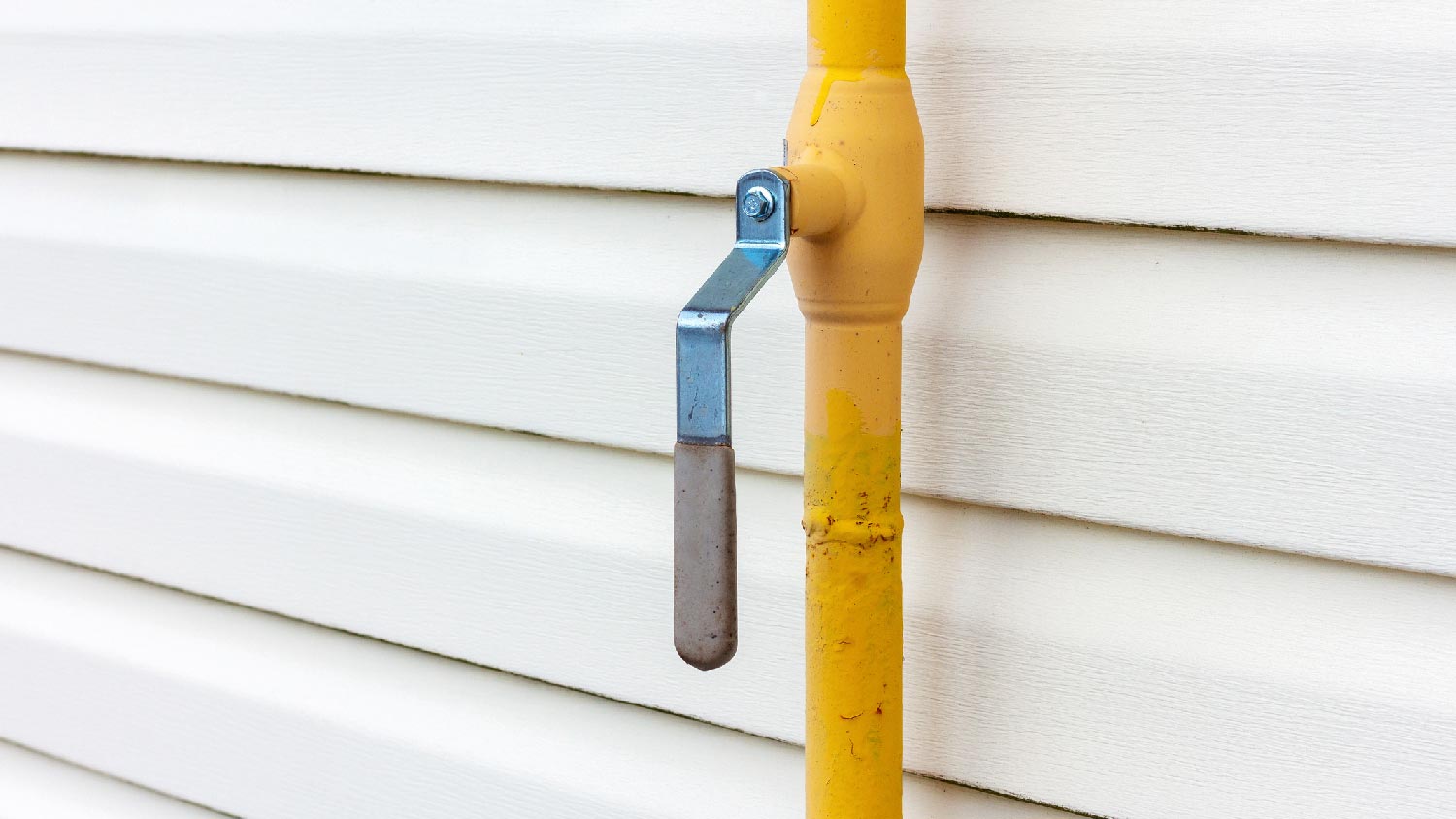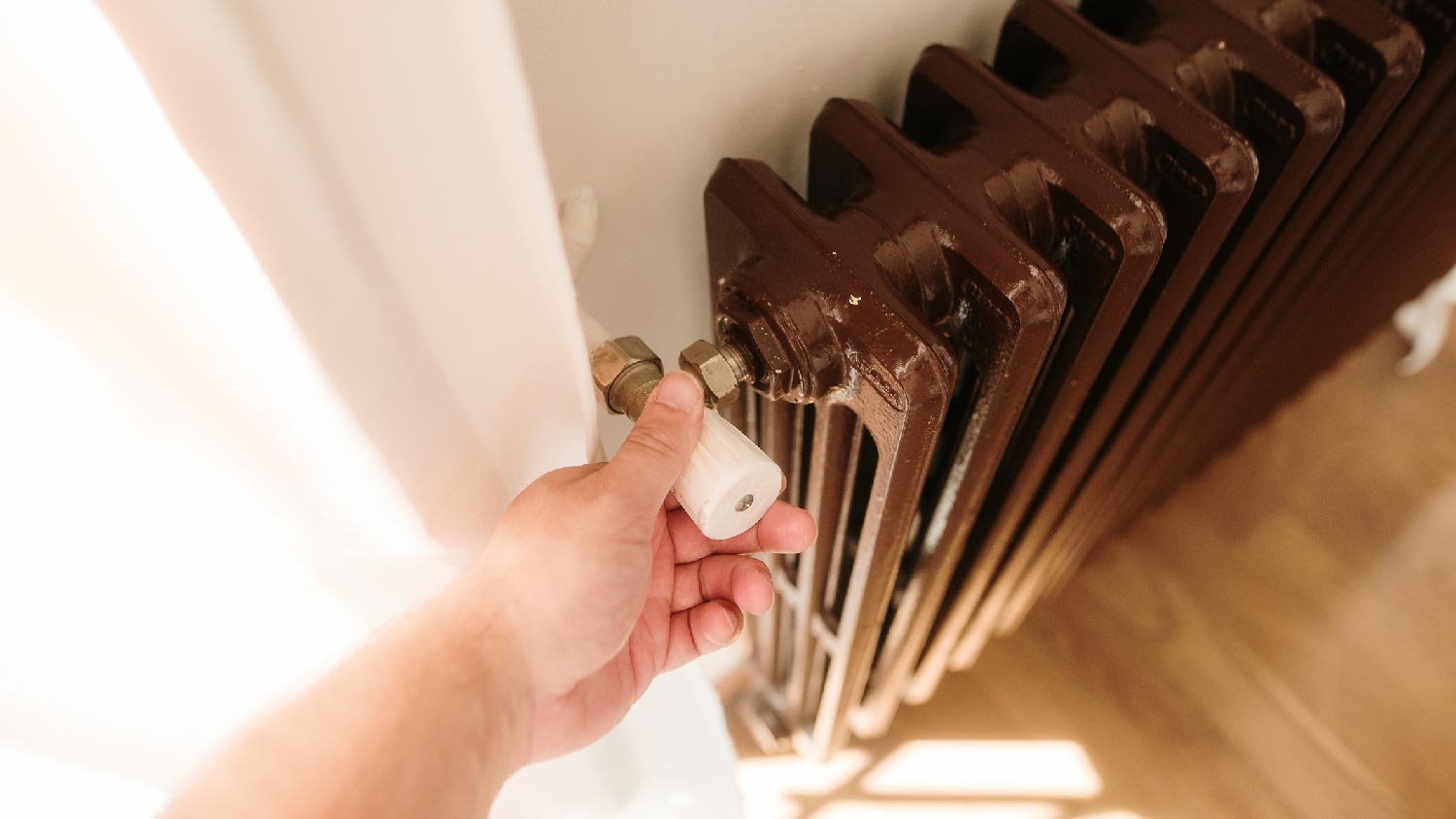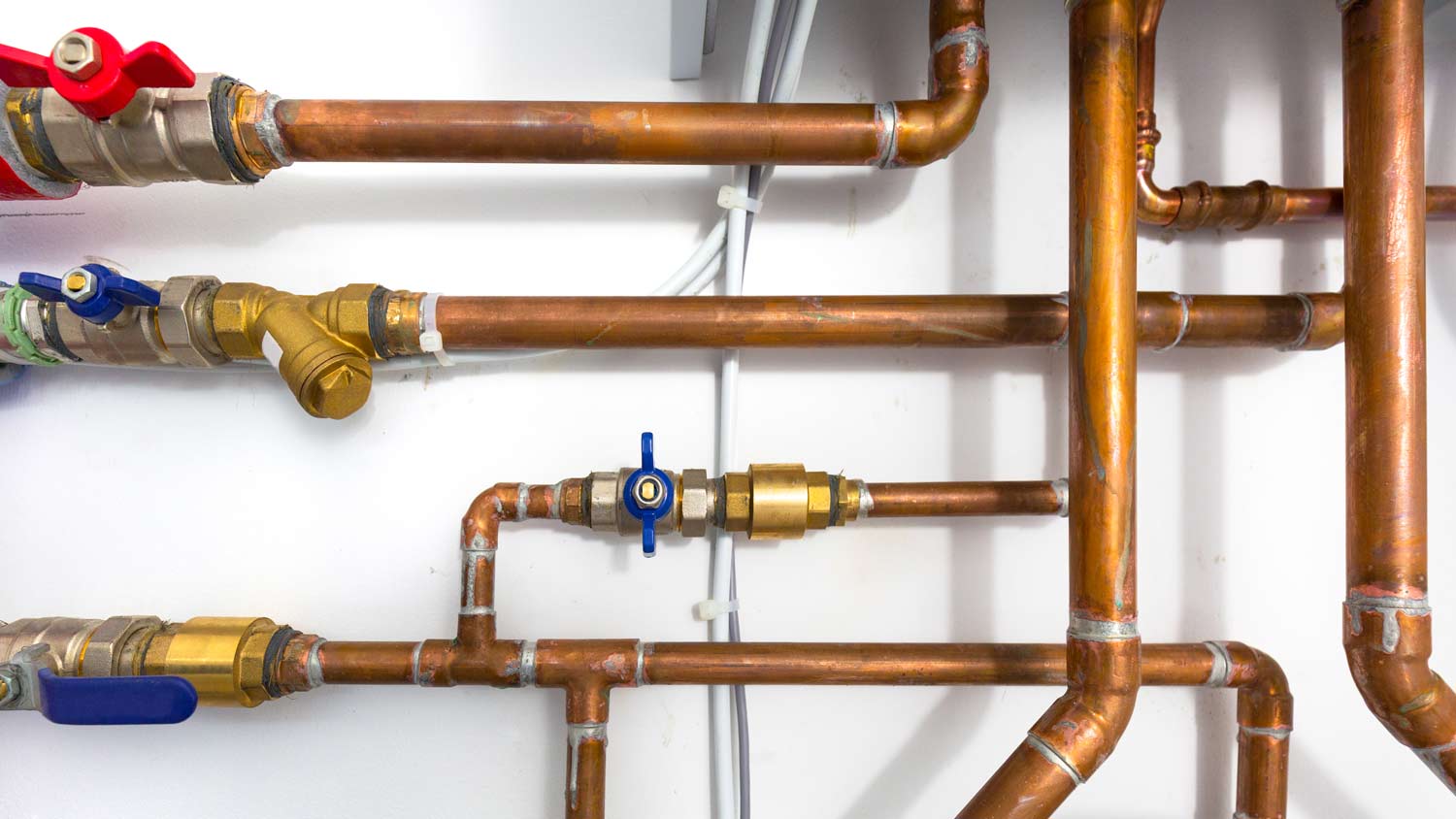
Find costs to repair a gas line and plan your budget based on the problem, from excavating for a new line to making a minor repair to an existing one.
Send that rotten egg smell back to pasture


The most dangerous cause of a rotten egg smell is a gas leak.
When you smell sulfur in your home, go outside and contact a local gas professional.
Once a pro rules out a gas leak, troubleshoot other causes, like drainpipe issues.
Other causes of the smell include sulfuric well water and broken drainpipes.
Your home is your sanctuary, and nothing ruins a mood more than the smell of rotten eggs in your house. Sulfur is a uniquely atrocious odor, and one whiff will send you looking through your house for the cause. Follow this guide to learn all about the six common causes of this nose-pinching odor and tips to eliminate it once and for all.
A gas leak is the most dangerous cause of that rotten egg smell, and it is by design. Natural gases are typically odorless, which presents an extreme danger in the case of a leak. To solve this problem, gas companies started adding a chemical called mercaptan to give their gas supply that distinctive sulfuric odor. Without this additive, you’d have no way of knowing when you were experiencing a life-threatening gas leak.
You need to rule out a gas leak as the cause of the smell immediately. Do not turn on or handle any electrical equipment in your home. Leave the house and call the authorities or contact a local gas leak repair specialist. Gas leaks are serious, so bring in a pro before considering any of the other options on this list. Better safe than sorry, right?
Repairing a gas leak costs anywhere from $120 to $250 on average, though you may have to spend an additional $270 to $760 to repair drywall if your pro needs to cut through it to get to the gas line. Still, this is a small price to pay for your family’s safety.

Once you’ve ruled out a gas leak, it’s time to roll up your sleeves and look around your home for the stinky culprit. Dried-out drainpipes are another common cause of that rotten egg smell in the home. Dry drainpipes often happen in guest bathrooms or bathrooms in vacation homes that remain relatively unused.
Sinks and tubs connect to something called a plumbing trap, or P-trap. As the name suggests, a P-trap is a P-shaped pipe that traps sewer gas and prevents it from heading into your home by creating a layer of water on the bottom of the curve. If the water evaporates, the sewer gas happily wafts into your home, creating a sulfur odor in the process.
Often, the fix for a leaky P-trap is simple. Run cool water in any sinks and tubs in the impacted bathroom for 10 minutes. This method allows the P-traps to build up the necessary amount of water to block that nasty sewer gas. Alternatively, you can try pouring a cup of vinegar or bleach down the drain—you’ll get the added bonus of a shinier, cleaner sink while you’re at it.
If these tips don’t work, contact a plumber near you for advanced troubleshooting. They may recommend installing a dedicated sewer gas trap or replacing your P-trap.
Most people assume that drywall is completely solid and poses no risk of creating any odors whatsoever, let alone the smell of rotten eggs. Unfortunately, that is not true, especially for homeowners who built houses or renovated their houses between the years 2001 and 2009. During those years, many contractors imported drywall from China that contained excessive amounts of sulfur. The result? Drywall off-gassing a sulfuric odor throughout your home.
Though contractors no longer import the offending drywall, many homes still include drywall sheets from the era. Authorities recommend homeowners check the copper coils in their refrigerators or air conditioning units, looking for tell-tale black ash on the copper coils that builds up when drywall emits consistent levels of sulfur.
Once successfully diagnosed, the only solution is to contact a drywall contractor and replace all of the infected drywall. Check your homeowner’s policy or homeowner’s insurance plan to find out if there is any potential coverage to offset the costs. Otherwise, replacing drywall costs an average of $60 to $90 per panel.

According to the Environmental Protection Agency (EPA), over 13 million American households rely on well water instead of treated water from a local municipal agency. Like sewage pipes, however, wells are susceptible to the smell of sulfur. In this case, the water itself develops the odor, thanks to a buildup of hydrogen sulfide caused by decaying vegetation in the ground. It’s not a dangerous occurrence, but it doesn’t create the most appealing drinking water.
The nose knows. Diagnose the issue by shutting off the water in your home for six hours, filling your sink up with several inches of cold water, and taking a strong whiff. If the smell of rotten eggs hits you in the face, you’ve unmasked the culprit.
For an even stronger confirmation, send a sample of your water to your local extension office by requesting a water testing kit. What’s the fix? Plumbers recommend installing a carbon filter on your drinking faucets and installing a reverse osmosis system or water softener system in your home.
Beyond a dried-out P-trap, many other sewage-related malfunctions result in the appearance of nasty odors. For instance, broken drainpipes allow sewer gases to seep out and run amok throughout your home and exterior property. Clogged drain vents also lead to various plumbing odors, and so on. Your plumbing system is finely tuned and fragile, and any number of issues lead to unwanted smells.
Troubleshoot on your own by running water throughout your home and watching for slowly running drains. Also, listen for a distinct gurgling sound when sinks drain or when toilets flush. Both of these symptoms suggest a clogged drain vent.
It is possible to clean and unclog a plumbing vent on your own, but amateurs should call in a plumber. Competent plumbers can also diagnose broken drainpipes even when a clogged sewer line lurks outside your home. Plumbing repairs cost around $325 on average, but can range from $75 to $4,000.
If it looks like a rotten egg and smells like a rotten egg, it’s a rotten egg. Expired eggs and other spoiled food items create all manner of foul odors throughout your home. Though eggs last a while before spoiling, the same is not true of other ingredients like chicken, avocado, green beans, bananas, mushrooms, and others.
Additionally, cooked ingredients can spoil and emit disgusting smells, so keep an eye on your cold-pressed juices and whatever leftovers lying in the refrigerator.
Clear out the offending ingredients, throw them in the trash, and immediately throw out the trash. After that, clean the refrigerator with a multi-purpose cleaner and install a mild air freshener in your kitchen or the fridge. Also, set your refrigerator’s thermostat to 40 degrees Fahrenheit or below to stave off early spoiling.
You should be concerned if your house smells of rotten eggs because of the dangers of a potential gas leak. If you know you have gas appliances and lines, vacate your home immediately with your family and pets. Don’t touch anything, including light switches and thermostats, on your way out. Call a gas plumber in your area or the natural gas company to come take a look as soon as possible.
If you don’t know if you have gas appliances in your home (which can include a water heater, boiler, and furnace, not just a gas stovetop in your kitchen), it’s safer to assume you may have gas appliances and act accordingly.
Even if you know for sure that you don’t have gas appliances or lines, you should still vacate the home because you may be smelling a neighbor’s gas leak if the leak is severe.
If you know for certain that the cause isn’t a gas leak, you should still be concerned because the smell points to a problem that needs fixing. Waiting too long to address it can cause the problem to get bigger, which will cost more to fix.
If you’ve played detective, exhausted your options, and everything turned up inconclusive, you shouldn’t give up. An unresolved rotten egg smell in your house could still pose a threat to your home—not to mention, the sheer smell of it can impact your everyday life.
If you’ve already had a gas company near you inspect your home to rule out a gas leak, it’s time to pass the baton over to a different professional—a plumber. Contact your local plumber to investigate the issue and get to the bottom of that rotten egg smell so that you can take a deep, worry-free breath.
A licensed plumber has the tools and expertise needed to get to the bottom of any sewage or drainage problems. They’ll use diagnostics to uncover hidden leaks or clogs, and fix them so that your home is safe.
It may come as a surprise, but plumbers are oftentimes the best professionals to hire for gas-related jobs. In fact, most states require plumbers to maintain certifications and insurance in order to take on projects related to gas, including installing and repairing gas lines for appliances, like ovens, stoves, and dryers.
Where there’s a smell, there’s always a root cause. Rotten egg smells that aren’t related to gas leaks can take more time to figure out since there are multiple possibilities. As you move through the list of potential reasons for the smell, you can do a few things to make the smell less noticeable. Consider opening all the windows, using an air filter, or placing charcoal odor absorbers around the home. Once you pinpoint the culprit and fix the issue, the smell will dissipate naturally.
From average costs to expert advice, get all the answers you need to get your job done.

Find costs to repair a gas line and plan your budget based on the problem, from excavating for a new line to making a minor repair to an existing one.

Whether it's time for pipe replacement or to hook up the range of your dreams, gas line installation cost is an important line in your budget. Let's take a look.

Curious how deep gas lines are buried? We’ve unearthed the answer and the dirt on how far down those lines might be lying in wait.

As temperatures plummet, you know to keep an eye out for frozen water pipes, but can gas lines freeze? Find out the answer and how to prevent major problems.

Choosing the right pipe type for your gas lines can help ensure the safe use of your gas appliances. Find out if you can use galvanized pipe for gas in this guide.

Trying to decide which home gas pipe size fits? We look into home gas pipes, standard sizes, how to measure, and factors that will influence your choice.